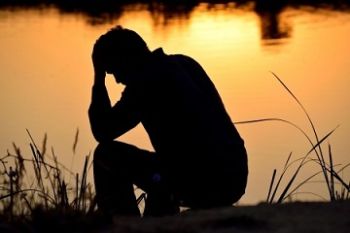 There’s a quote I found online which, sadly, I haven’t been able to attribute, but seems to originate sometime around 2013. It says, “If no one comes from the future to stop you from doing it then how bad of a decision can it really be?” I like that quote partly because I’m a science-fiction geek, but mostly because it’s so mind-bogglingly wrong that it’s almost tricky to begin unraveling how wrong it is.
There’s a quote I found online which, sadly, I haven’t been able to attribute, but seems to originate sometime around 2013. It says, “If no one comes from the future to stop you from doing it then how bad of a decision can it really be?” I like that quote partly because I’m a science-fiction geek, but mostly because it’s so mind-bogglingly wrong that it’s almost tricky to begin unraveling how wrong it is.
But, in the interest of completeness: Maybe time travel doesn’t exist. People make terrible decisions every day that aren’t stopped by time travelers from the future. Even if time travel were possible, it’s entirely likely that your decision can still be plenty terrible yet not so bad as to risk tearing apart the space-time continuum. Or – speaking most cataclysmically – it could be such a terrible decision that there is no future from which to send someone to stop you.
Now, you might be reading this and hypothetically asking, “But, Steven . . . what does this have to do with Catholicism or todays readings?” Good question, hypothetical reader. Today’s Gospel selection from Luke is another version of Jesus’ parable of the vigilant and faithful servants; the servant who convinces himself that his master isn’t coming soon and gets drunk is surprised by the master’s arrival. (I suspect a slightly more familiar version is from Matthew 24:45-51.)
Now, this is a very common parable. I’m sure I’ve written about it at least tangentially before, but its advice is solid on the surface: Live your life as if you could have to answer to God at any moment. I’m sure you’ve heard a version of that homily at least a few times.
However, I wanted to think of something a smidge different for today. So, it started with a simple premise: What would have stopped the foolish servant from getting in trouble? Sure, “not acting foolishly,” that’s a given. But how could he have not done that? Obviously, he could have been smarter, or wiser, or less impulsive. But most of our mistakes in life could be avoided if we were smarter, or wiser, or had some other trait. I’m not sure it’s terribly helpful to say that if he’d been a different person things would have turned out differently for him.
No, the answer I’m thinking of is directly related to my ludicrous opening quote: He wouldn’t have made that mistake if someone had stopped him. Or, perhaps more correctly, if someone had tried to stop him, and he had acted positively on that attempt.
Obviously he wouldn’t be stopped by a time traveler (despite the Bible’s reminder that God’s sense of time is not as our own). But he could have easily been stopped by a friend or compassionate co-worker. After all, how many mistakes are thwarted or corrected before they’re even made because of a helpful reminder from a friend, a nudge from a spouse, or damage control from a boss?
One of the reasons we Christians are continually reminded that we’re part of a Christian community – members of the Body of the Church – is because we’re all supposed to be on the road to salvation together. Obviously Christ can – and does – work miracles in returning errant sheep to the fold . . . but I’d argue that the Spirit wants to work through us to help ensure that miracles aren’t needed. Just as it’s easier to fix a boat when it’s a minor leak compared to when it’s a gaping hole, it’s often much more effective help others in our community before it becomes a life-threatening crisis.
Perhaps there have been times in your life when you’ve prevented someone else from being the “unfaithful servant,” acting as counsel when they were going to do something foolish. Perhaps there are others in your life who have served you wisdom in your time of need, keeping you from doing something you would regret.
If we go through life alone – or without the company of those who we trust – we risk failing as the unfaithful servant did, succumbing to our own flawed nature. By acting together – as parts of the Catholic community – we can advise a friend to not do something foolish, guide a spouse to greater spiritual strength, help members of our family see a different path in life, or be available to help those in the parish. And, conversely, we should ensure we surround ourselves with good friends and trusted companions, to help us avoid our own failings and bring us closer to Christ together.
Even if we can’t trust a time traveler to save us from ourselves, we can do the work of Christ on Earth and save others from themselves. The unfortunate fate of the foolish servant could have been prevented if he had a wiser friend . . . and as part of the larger Christian community, perhaps we can all be wiser and more ready – together – for the coming of our Master.
